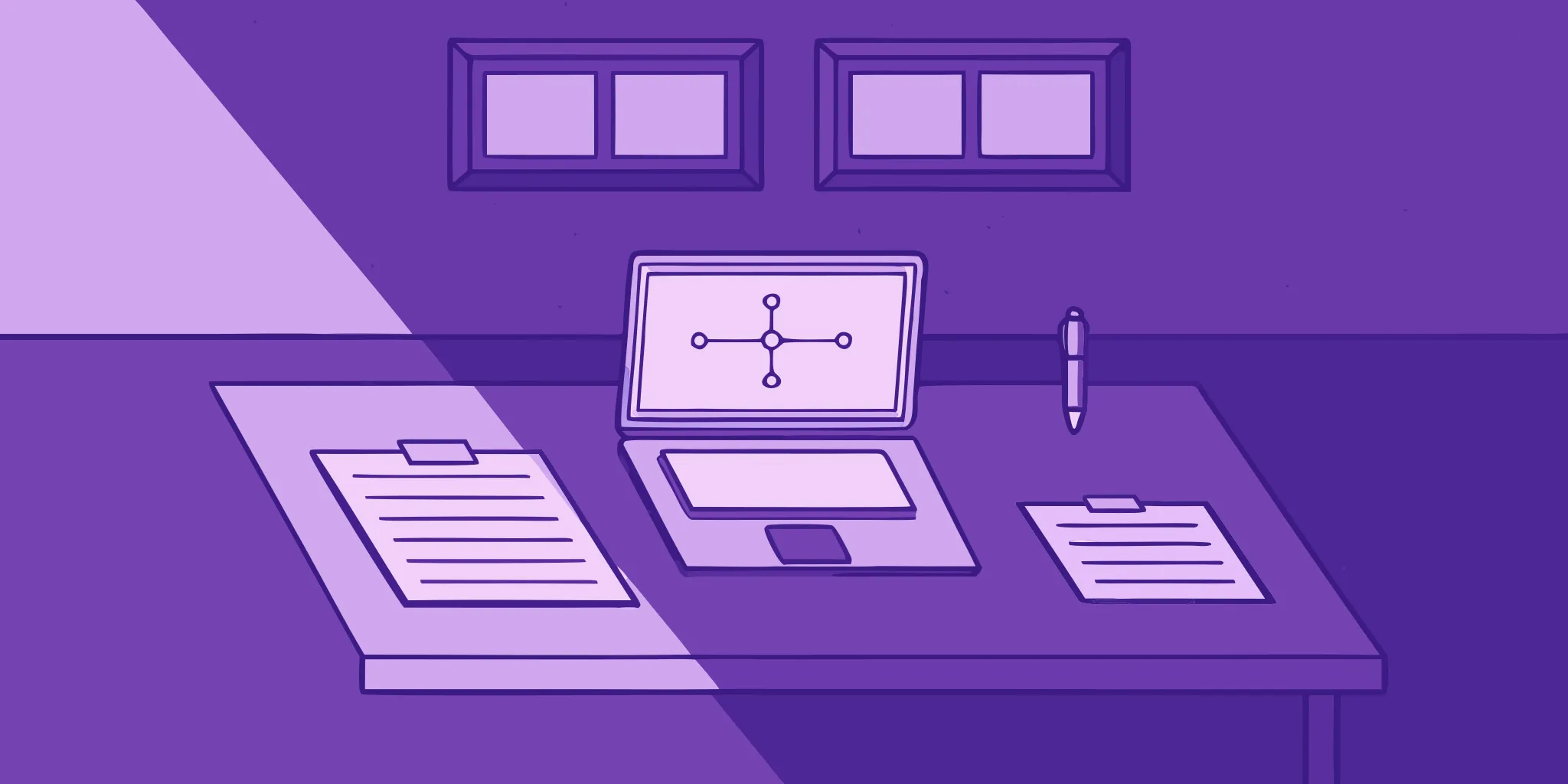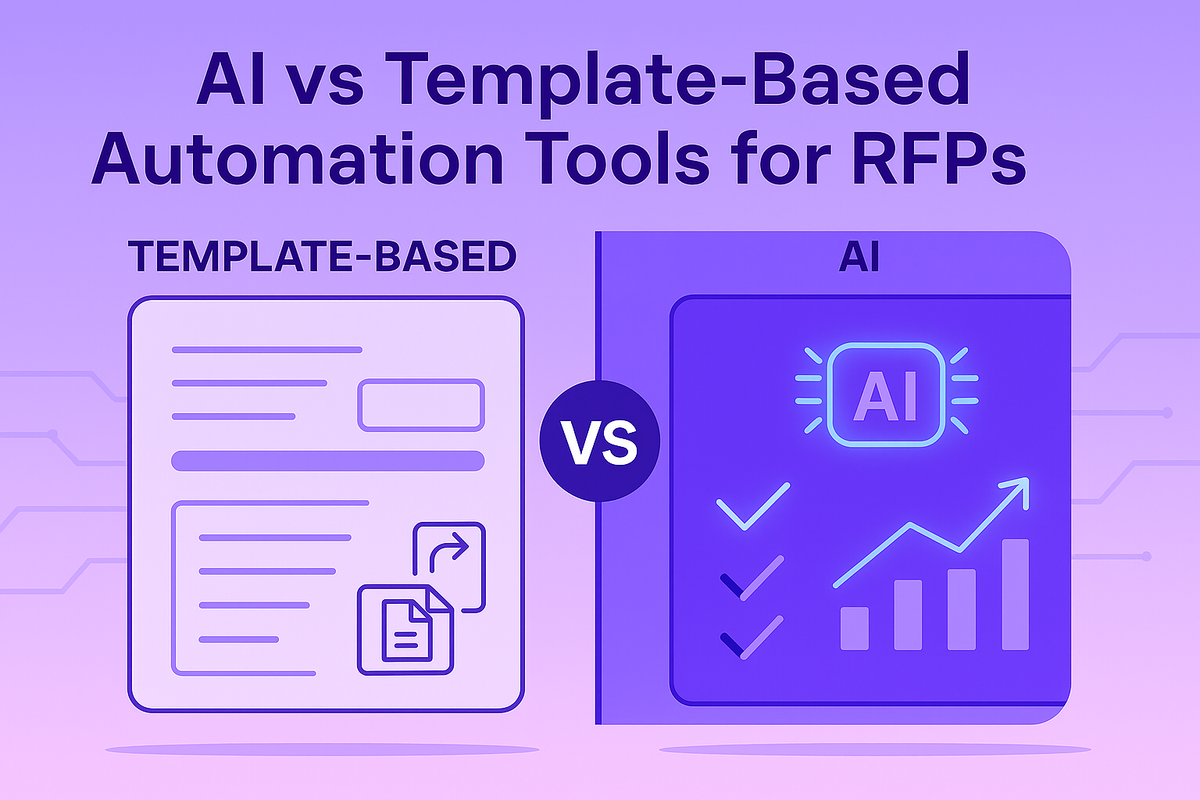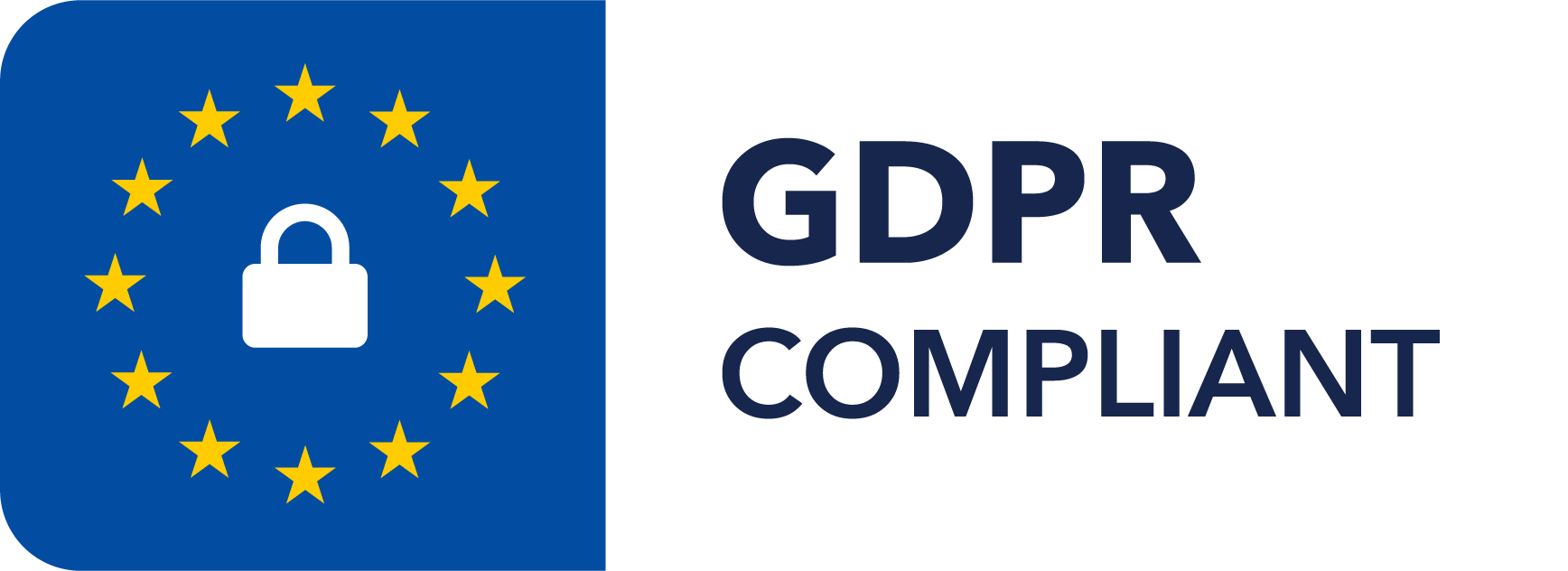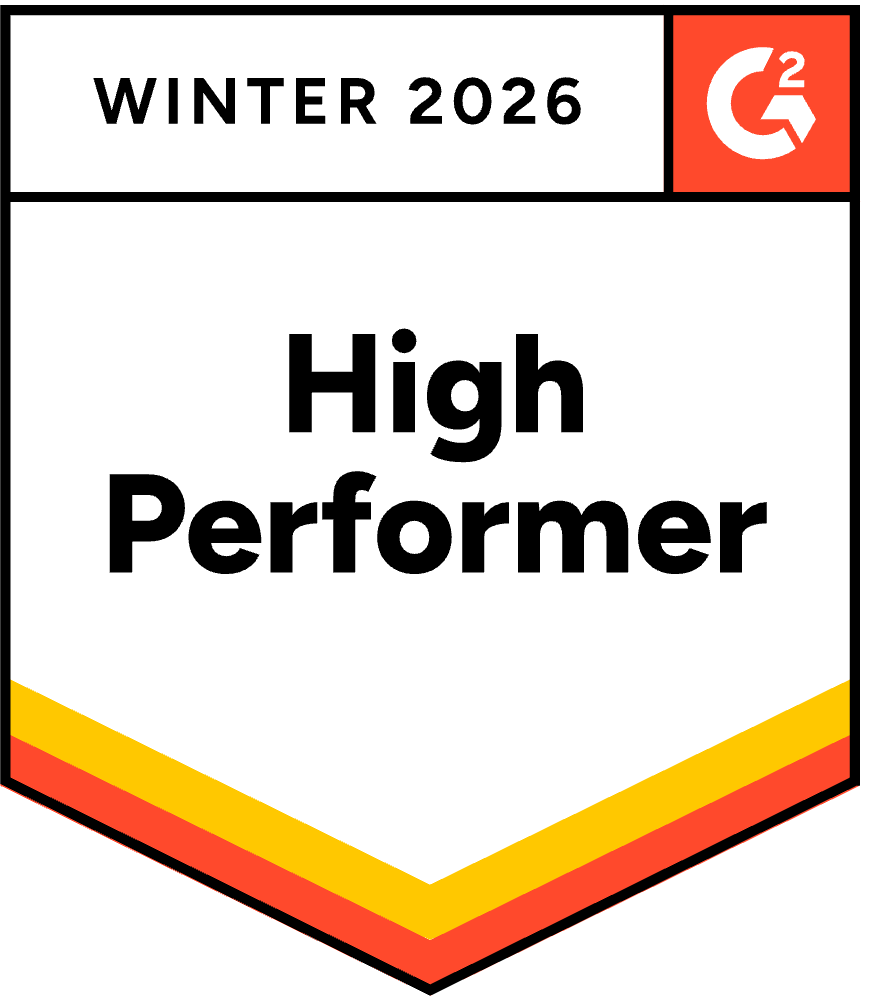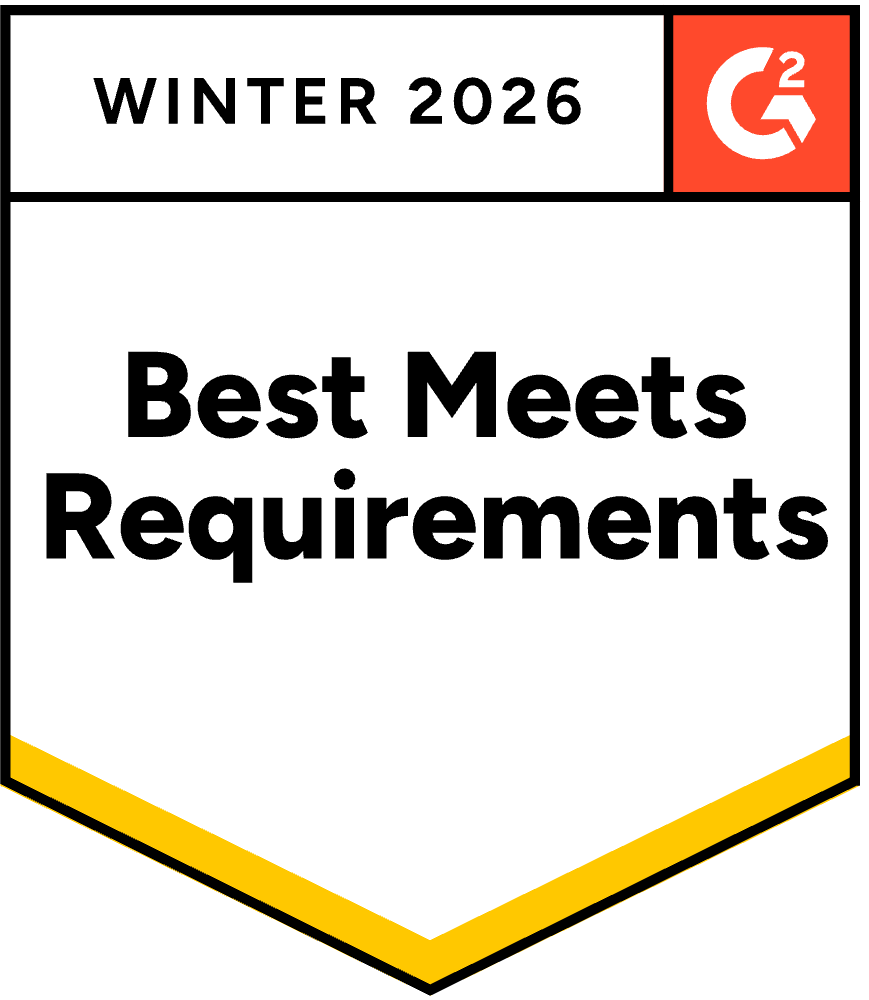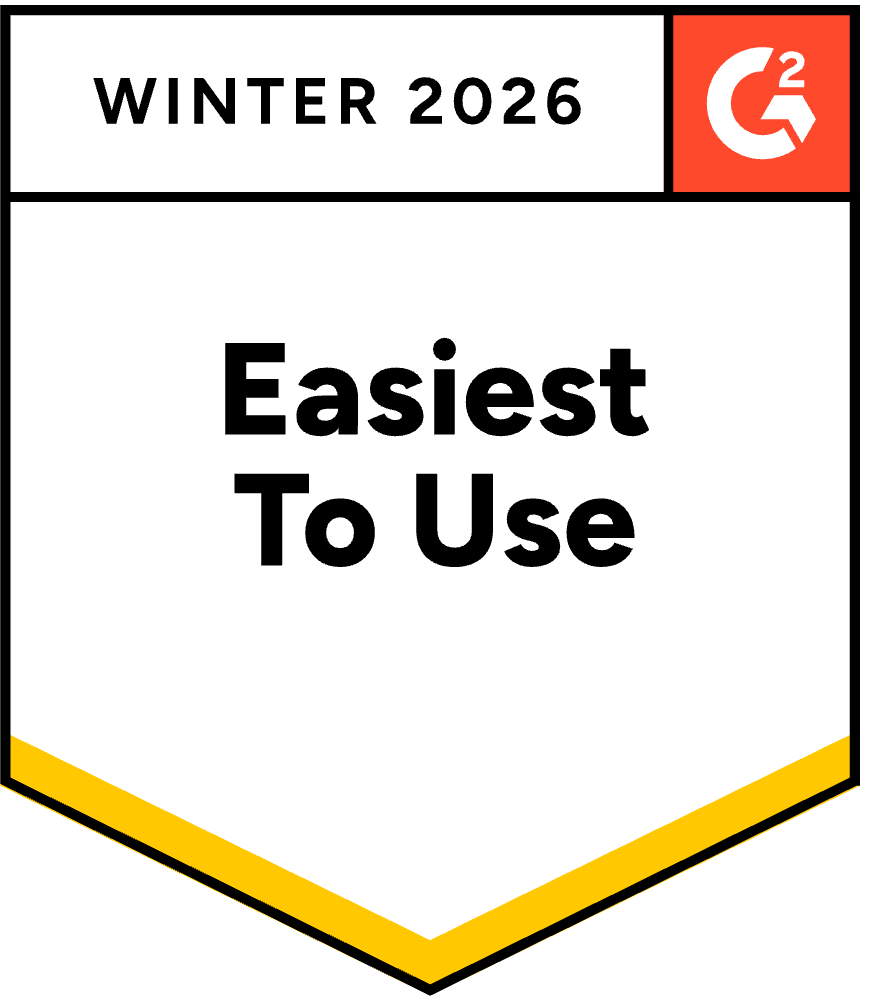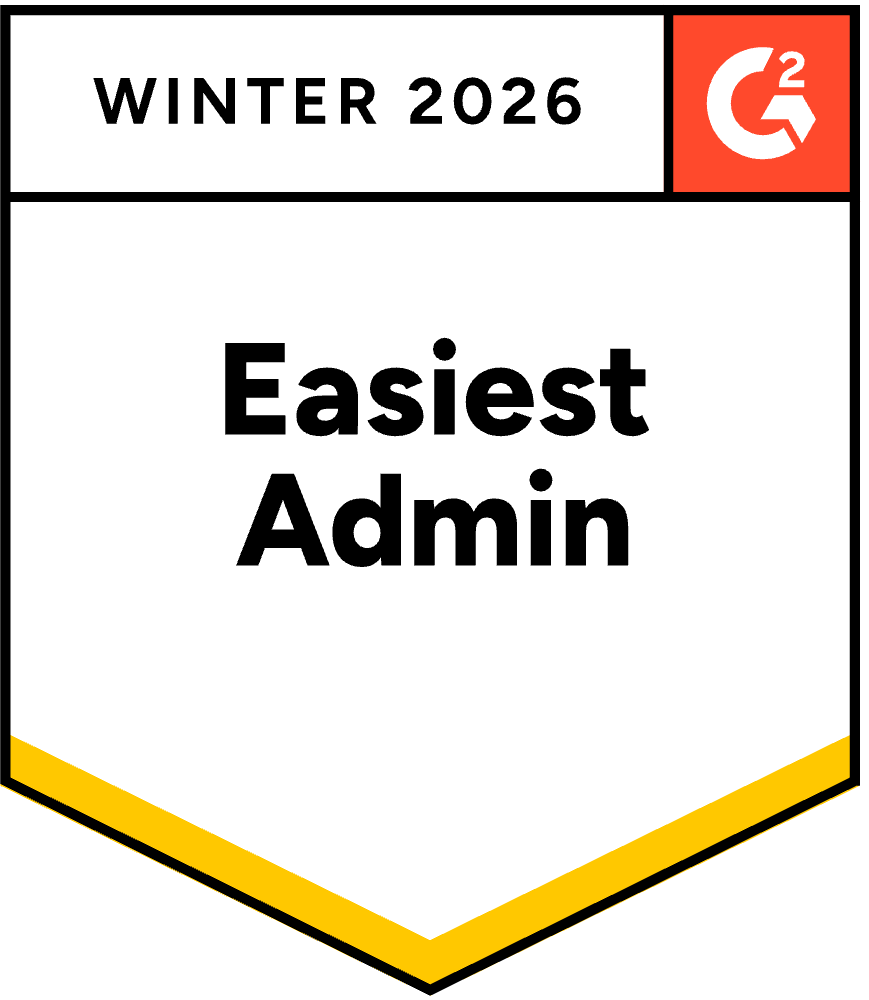How to Write Winning RFP Responses with AI
February 20, 2025
By
Evie Secilmis

Mastering the RFP Response Process with AI-Powered Efficiency
Responding to RFPs can feel like a race against the clock. You need speed, but you can't sacrifice accuracy. It's a tough balance to strike. This is where a smart AI RFP response strategy changes the game. Think of it less as a robot writing your proposals and more as a super-powered assistant for your team. The right tools help you automate RFP responses, instantly finding the right answers and ensuring consistency. This frees up your experts to focus on strategy, letting them build winning proposals without the usual burnout.
Leveraging AI for Smarter RFP Responses
AI-driven automation is transforming the way companies tackle RFPs. From analyzing proposal requirements to generating content drafts, advanced AI solutions save teams countless hours while ensuring consistency and quality. By integrating best-in-class AI-RFP automation, businesses can reduce manual effort, minimize errors, and increase response speed, allowing teams to focus on strategy rather than tedious data entry.
How AI Understands RFPs with Natural Language Processing (NLP)
Think of Natural Language Processing (NLP) as the technology that allows AI to read and understand human language, much like we do. When you feed an RFP into an advanced platform, AI tools use NLP to scan the entire document. They don't just see a wall of text; they intelligently identify key questions, deadlines, and specific requirements that are often buried in dense paragraphs. This capability allows the software to parse complex RFP documents and break them down into manageable components. Instead of your team spending hours manually highlighting and dissecting the request, the AI does the heavy lifting in seconds, letting you focus on crafting a response that speaks directly to your potential client's needs.
Ensuring Accuracy with Retrieval-Augmented Generation (RAG)
So, how does the AI write such accurate answers? It often uses a technique called Retrieval-Augmented Generation, or RAG. This is a sophisticated way of saying the AI doesn't just invent information. Instead, it acts like a super-smart research assistant. The AI retrieves relevant, pre-approved information from your company's content library—your single source of truth containing past proposals, case studies, and product specs—to build its response. This process is fundamental to ensuring accuracy and context in every proposal. By pulling from your trusted knowledge base, the AI generates answers that are not only correct but also highly relevant to the client's specific questions, making your proposal far more compelling and trustworthy.
The Role of Autonomous AI Agents
Taking automation a step further, some AI platforms employ autonomous agents to manage the RFP workflow. These aren't just tools that wait for a command; they are proactive partners in the response process. An AI agent can take on tasks like assigning questions to subject matter experts, tracking progress, and even flagging outdated information in your content library for review. For instance, our platform, Iris, proactively identifies information that needs a refresh across your connected systems. These agents help businesses respond to RFPs much faster and with better results by handling the administrative load, freeing your team to focus on the strategic elements of the proposal—like tailoring the value proposition and perfecting the narrative.
Automating More Than Just RFPs
Handling RFIs, DDQs, and Security Questionnaires
The sales process rarely starts and ends with a single RFP. Often, you're juggling a whole suite of documents, from initial Requests for Information (RFIs) to detailed Due Diligence Questionnaires (DDQs) and critical security questionnaires. Tackling these one-off requests manually can drain your team's resources and pull focus from the main proposal. This is where a comprehensive AI solution truly shines. The best platforms are built to handle the entire response lifecycle, not just one part of it. By automating responses for RFIs, DDQs, and security questionnaires, you create a single source of truth, ensure consistency across all your communications, and give your team back the time they need to focus on strategic, high-value work. It’s about turning a series of administrative hurdles into a streamlined, efficient process that keeps your momentum going.
Building a Dynamic Content Library
Successful RFP teams maintain a centralized, easily searchable repository of past responses, case studies, and approved content. A dynamic content library ensures that subject matter experts (SMEs) and proposal managers can quickly find and customize the most relevant information, eliminating redundancy and improving response accuracy.
AI-Powered Content Management
A content library is a great start, but AI-powered tools take it a step further. Instead of just storing information, they actively manage and deploy it. When a new RFP comes in, the AI uses natural language processing (NLP) to analyze the document, understand the specific questions, and identify key requirements. It then scans your entire content library to find the most relevant, approved answers. From there, it can generate a complete first draft in minutes, not hours. This incredible speed allows your team to shift its focus from tedious copy-pasting to refining the proposal, tailoring the messaging, and ensuring every response is high-quality and strategically sound.
Keeping Information Current with Live Knowledge Sync
One of the biggest challenges with any content library is keeping it from becoming stale. Product specs change, new case studies are published, and company stats are updated. Manually updating every entry is a recipe for outdated information slipping through the cracks. This is where a live knowledge sync becomes essential. Modern AI platforms connect directly to the systems your team already uses, like SharePoint, Google Drive, and Salesforce. This creates a single source of truth, ensuring the information used in your proposals is always fresh and accurate. The best systems even proactively identify and flag content that may be outdated, making maintenance effortless and protecting your brand’s reputation.
Optimizing Workflow Management
A well-structured workflow is crucial to maintaining efficiency in the RFP process. Businesses that implement smart workflow tools ensure that responsibilities are clearly assigned, deadlines are met, and bottlenecks are minimized. Automated tracking systems can enhance visibility, keeping teams aligned and proactive in their approach.
Engaging Subject Matter Experts at the Right Time
RFPs often require detailed, technical responses that demand input from SMEs. Organizations that integrate AI-assisted SME engagement can streamline collaboration, ensuring that expert insights are incorporated efficiently without overburdening key personnel. AI-powered recommendations help teams identify the most relevant existing responses, reducing the need for repeated back-and-forth.
Augmenting Human Expertise, Not Replacing It
Let's address the elephant in the room: AI isn't coming for your job. Instead, think of it as a powerful assistant that takes over the tedious, repetitive parts of proposal management. It can instantly sift through your entire knowledge base to generate accurate first drafts, freeing your subject matter experts (SMEs) from answering the same questions over and over. This allows them to focus their valuable time on the strategic, high-value work—like tailoring responses to a client's specific pain points and reviewing the AI-generated content for that final human touch. The best AI deal desk solutions are designed to support your team, not supplant them. The result is a partnership where technology handles the heavy lifting, and your team directs its expertise toward crafting winning proposals and pursuing more opportunities.
Improving Win Rates with Data-Driven Insights
AI analytics tools provide valuable insights into past proposal performance, highlighting trends and opportunities for improvement. By tracking success metrics and optimizing responses based on historical data, businesses can refine their strategies and increase their likelihood of winning new contracts.
Making Smarter Bid/No-Bid Decisions
Not every RFP is worth your time. Chasing every opportunity can stretch your team thin and lead to burnout, especially when you’re investing weeks into a proposal with a low probability of success. This is where a strategic approach becomes essential. AI helps shift your team from a reactive cycle to a proactive, data-driven one by analyzing historical data to predict the win potential for new bids. By evaluating factors like your past performance with similar clients, the scope of the project, and key requirements, AI-powered tools can provide a clear bid/no-bid recommendation. This allows you to focus your energy and resources on the opportunities you are most likely to win, making your entire process more strategic and effective.
Quantifying the Impact on Speed and Efficiency
The most significant advantage of integrating AI is the dramatic reduction in the time it takes to create high-quality proposals. AI tools use natural language processing to instantly parse complex RFP documents, identify key questions, and pull the most relevant answers from your content library. This allows you to generate a complete first draft in minutes, not days. The numbers speak for themselves: teams using AI have been able to create proposals 80% faster. In one instance, a user answered 90% of a 300-question security questionnaire in just 30 minutes. This incredible speed doesn't just save time; it frees your team to focus on strategic customization and relationship-building, ultimately leading to higher win rates.
Unlocking Strategic Advantages with AI
Beyond just accelerating your workflow, AI offers powerful strategic advantages that can give your proposals a serious competitive edge. Think of it as moving from simply answering questions to shaping the narrative. Instead of just being faster, your team can become smarter and more strategic in its approach. This means using the technology not only to assemble responses but also to gather intelligence and operate on a global scale with ease. By tapping into these advanced capabilities, you can craft proposals that are not only accurate and timely but also more insightful and persuasive, directly impacting your ability to win more deals.
Responding Globally with Multi-Language Support
Competing in a global market means facing RFPs from around the world, often in different languages. This used to require expensive translation services and created significant delays. Modern AI-powered RFP tools eliminate this barrier completely. The best platforms can instantly translate and respond in dozens of languages, allowing your team to pursue international opportunities without hesitation. This capability ensures your proposals maintain their accuracy and tone, regardless of the language. It opens up new revenue streams and allows you to compete on a global stage, ensuring you never miss out on a great opportunity because of a language barrier.
Gaining an Edge with Competitor Research
A winning proposal doesn’t just highlight your strengths; it strategically positions them against the competition. AI can serve as your team's competitive intelligence hub, storing and analyzing information about your key competitors. When you respond to an RFP, the AI can help you tailor your answers to emphasize your unique value propositions and address known weaknesses in competing solutions. This transforms your proposal from a simple Q&A document into a compelling strategic argument. By embedding this intelligence directly into your workflow, you ensure every response is crafted not just to be compliant, but to be truly competitive and persuasive.
Prioritizing Data Security and Compliance
Handing over sensitive company information, which is standard practice in any RFP, requires a deep level of trust in your tools. When you introduce an AI platform into this process, security isn't just a feature—it's a fundamental requirement. Your proposals contain proprietary data, pricing strategies, and client information, all of which must be protected. That’s why it’s critical to choose an AI solution built on a foundation of robust security and compliance. A trustworthy platform ensures your data is used solely for your benefit and is protected from unauthorized access, giving you the confidence to automate your most critical sales documents.
Meeting Industry Standards like SOC 2 and ISO 27001
How can you verify a platform's commitment to security? Look for recognized industry certifications. Standards like SOC 2 and ISO 27001 are not just acronyms; they are proof that a vendor has undergone rigorous, independent audits of their security controls and practices. Leading AI RFP solutions demonstrate their dedication to data protection by achieving these certifications and complying with regulations like GDPR and CCPA. When you evaluate a potential tool, always confirm it uses strong encryption and has clear data privacy policies. This ensures your confidential information remains secure and your organization stays compliant with global data protection standards.
Future-Proofing Your RFP Strategy
As competition intensifies, leveraging AI-powered RFP automation is no longer a luxury but a necessity. Organizations that embrace these advancements position themselves as agile, data-driven leaders in their industries. By adopting best-in-class AI-RFP automation, companies can drive efficiency, reduce friction, and ultimately secure more business opportunities.
Final Thoughts
Winning RFPs requires a mix of precision, speed, and strategic positioning. By leveraging AI automation, building a dynamic content repository, and optimizing workflows, businesses can transform their approach and gain a competitive edge. Embracing these innovations ensures a streamlined process that maximizes efficiency and increases success rates in an ever-evolving marketplace.
Frequently Asked Questions
How can AI improve the RFP response process? AI automates repetitive tasks like data extraction and content formatting, enabling faster, more accurate RFP responses. It helps teams organize information, suggest relevant answers, and reduce errors, ultimately speeding up the proposal process while maintaining high-quality submissions.
What are the benefits of using AI for RFP responses? Using AI increases efficiency, consistency, and accuracy in responses. It allows teams to quickly reuse existing content, ensures compliance with requirements, and provides insights to tailor proposals, leading to higher win rates and reduced turnaround times.
Can AI help customize RFP responses for different clients? Yes, AI can analyze client requirements and suggest personalized content from a knowledge base. This customization ensures that responses are relevant, targeted, and meet the specific needs of each RFP, improving the chances of success.
What types of AI tools assist with RFP management? AI-powered RFP management tools include natural language processing for content analysis, automation platforms for workflow management, and intelligent search engines to quickly retrieve past responses. These tools streamline collaboration and version control.
Is AI suitable for all industries in handling RFPs? Absolutely. AI tools for RFP responses are adaptable across industries such as finance, healthcare, technology, and government. They enhance accuracy and efficiency in complex, compliance-heavy environments by managing large volumes of data and documentation.
How Does Automation Enhance the RFP Response Workflow? Automation enhances the RFP response workflow by streamlining repetitive tasks, such as data extraction, content generation, and formatting. AI-powered tools help speed up the process, ensuring consistent and accurate responses with minimal manual effort. Automation also improves collaboration by automatically suggesting relevant content from a centralized repository, reducing the time spent on manual research and edits. By optimizing these tasks, automation enables teams to focus on strategy and delivering high-quality proposals, ultimately increasing efficiency and win rates.
Key Takeaways
- Automate the busywork to focus on strategy: Let AI handle the heavy lifting of generating first drafts and finding correct answers. This frees your experts to spend their time customizing proposals and crafting a narrative that truly resonates with the client.
- Build a single source of truth for your content: An AI-powered response tool is only as effective as the information it can access. Keep your content library centralized and synced to ensure every proposal is accurate, consistent, and up-to-date.
- Use data-driven insights to win more deals: Move beyond just responding faster. Use AI to analyze past performance, make smarter bid/no-bid decisions, and gain a competitive edge by understanding where you stand against the competition.
Related Articles
Share this post
Link copied!




